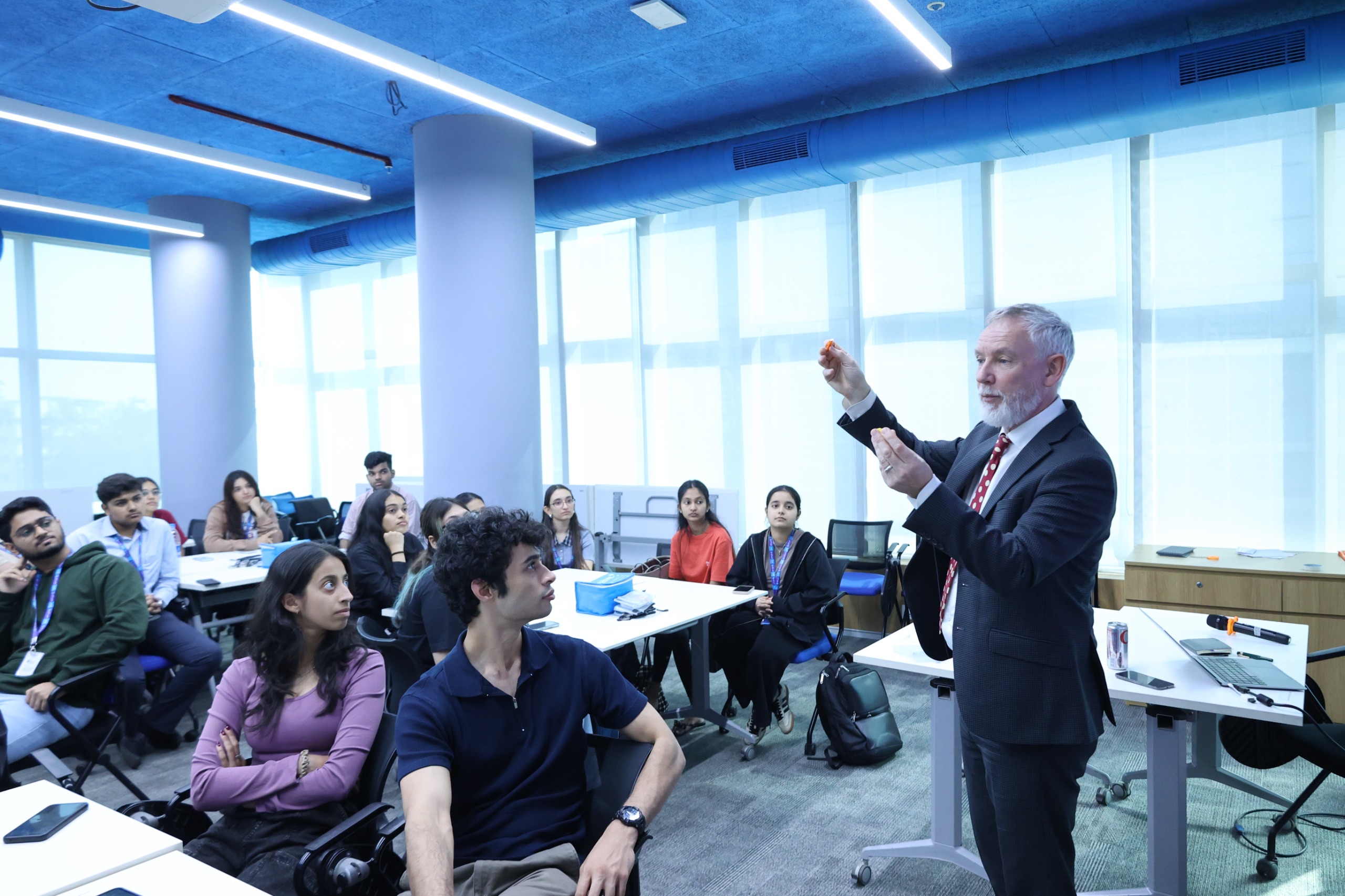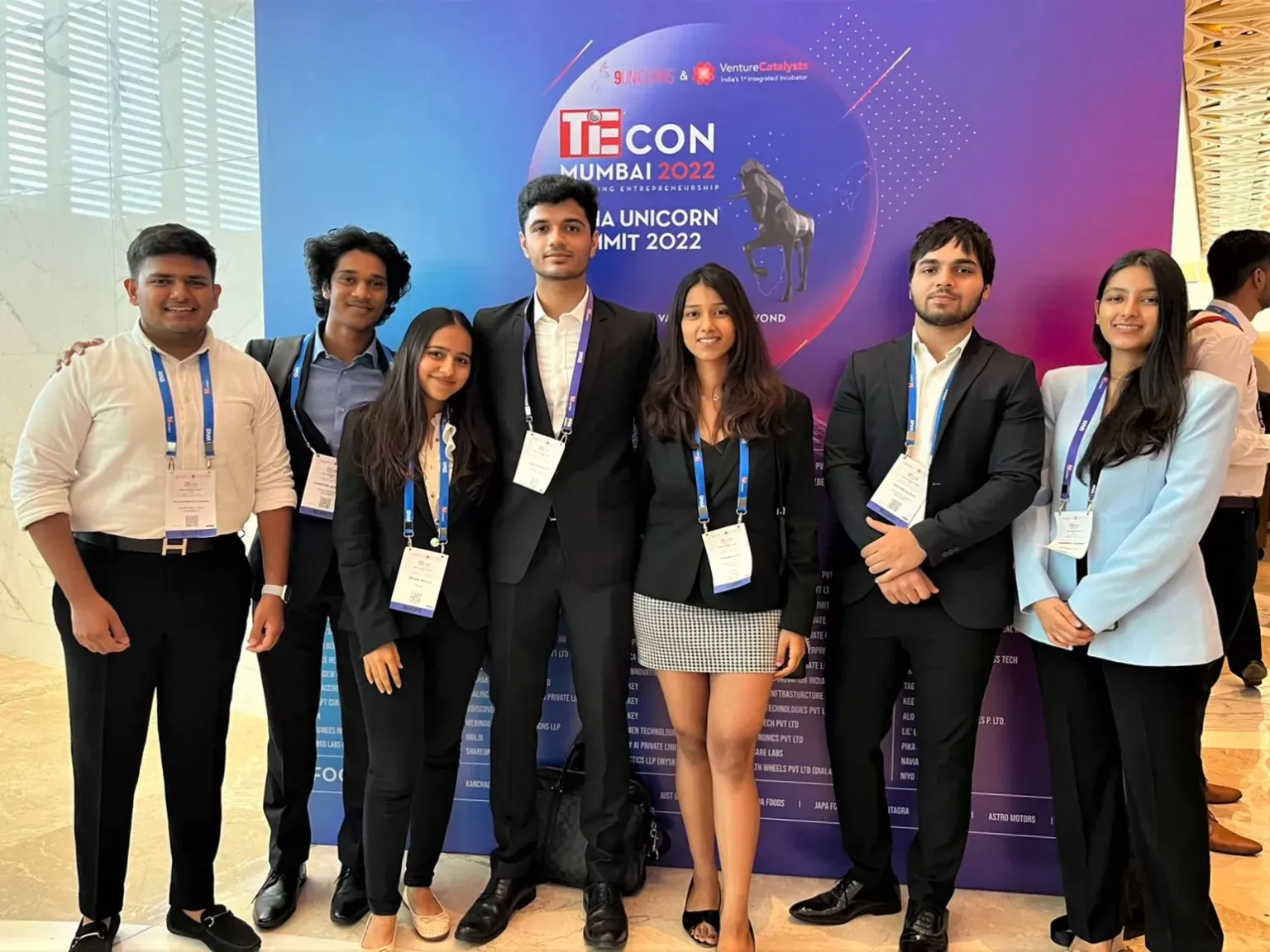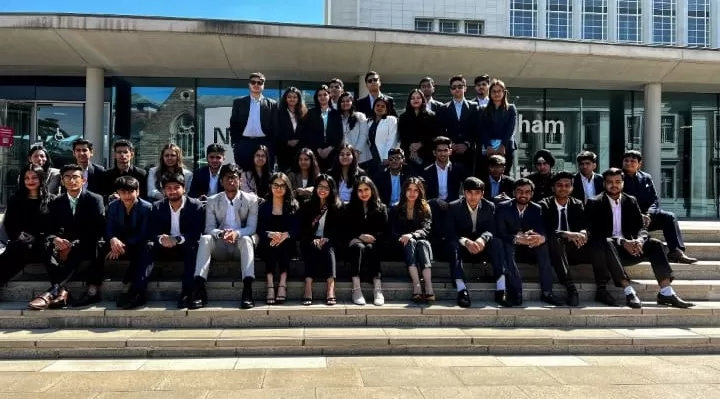Insights into the world of Private Equity: A conversation with seasoned PE professionals
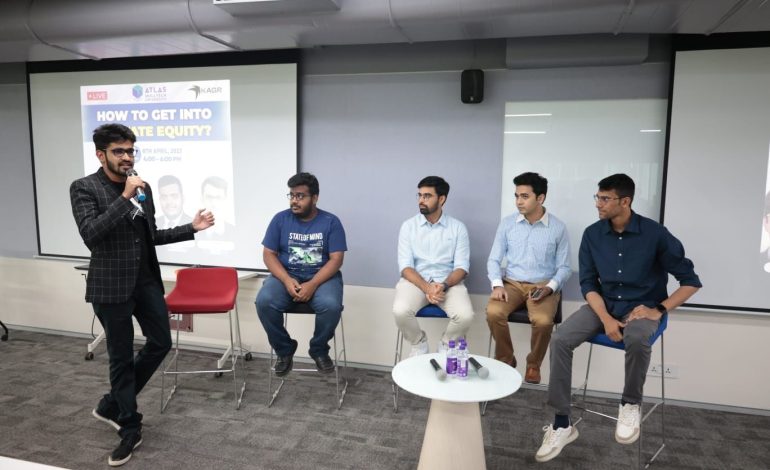
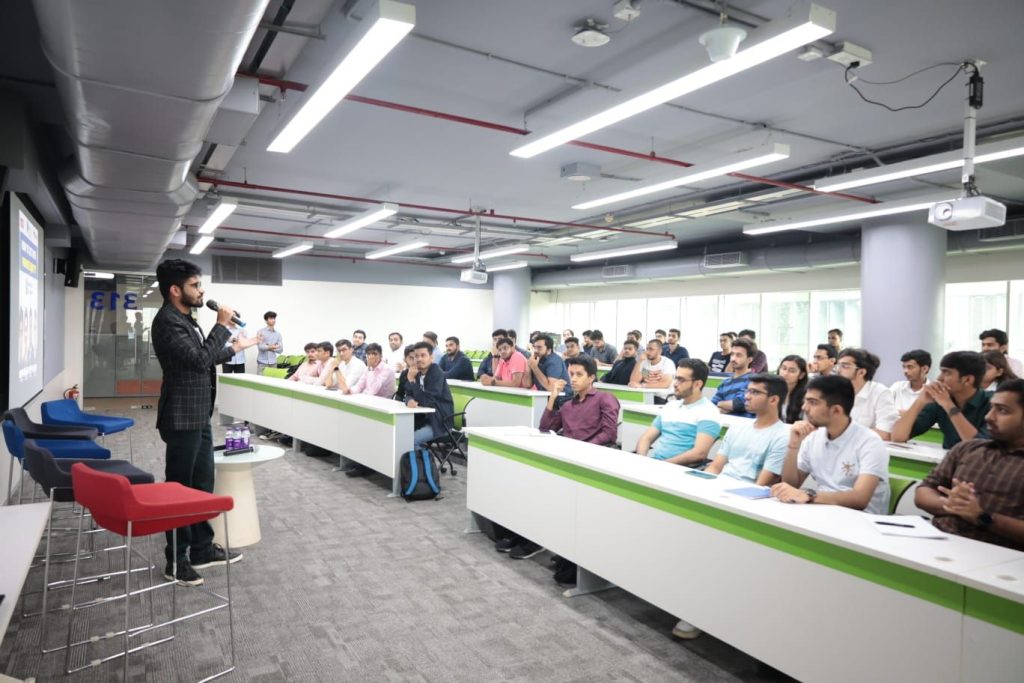
ATLAS SkillTech University, in collaboration with KAGR, hosted a session titled ‘How to get into private equity?’, which offered students valuable insights on how to enter the private equity industry. The session featured a distinguished panel of industry professionals, including Viren Rajani, Vice President of Private Equity at Bain Capital, Divyansh Jain, Associate at Blackstone, Arjjun Balasubramanian, Associate at Warburg Pincus and Karan Patel, Private Equity Analyst at The Carlyle Group. The panelists shared their personal experiences and provided guidance to the audience on navigating the private equity industry.
Insights from the panel
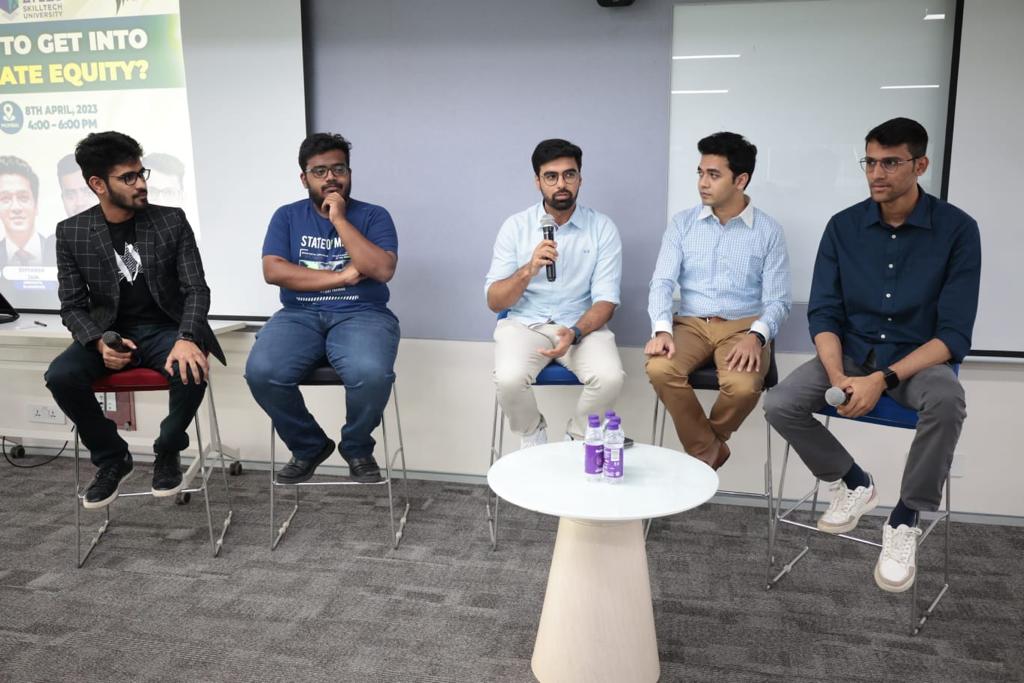
What is Private Equity?
Private equity is a straightforward practice. It involves investing in partners or businesses where we believe we can enact positive changes and materially enhance their performance. Our objective is to improve the business’s performance and generate profits for ourselves in the process.
What are the possible role options for people looking to get into private equity?
Private equity firms typically recruit from three main talent pools: consulting firms such as McKinsey, BCG and Bain, investment banks and students straight out of college.
The entry-level position is usually that of an analyst, which can be directly recruited from college.
However, private equity firms are always evolving in their hiring practices and it’s not uncommon for them to hire talent from other sources. For instance, firms like Avendus have been known to do excellent work in the country and so they may be a potential source for talent. Ultimately, private equity firms are looking for individuals with relevant experience and aptitude and one’s background need not be a barrier to entry. For example, even someone with a law degree can work in a private equity firm.
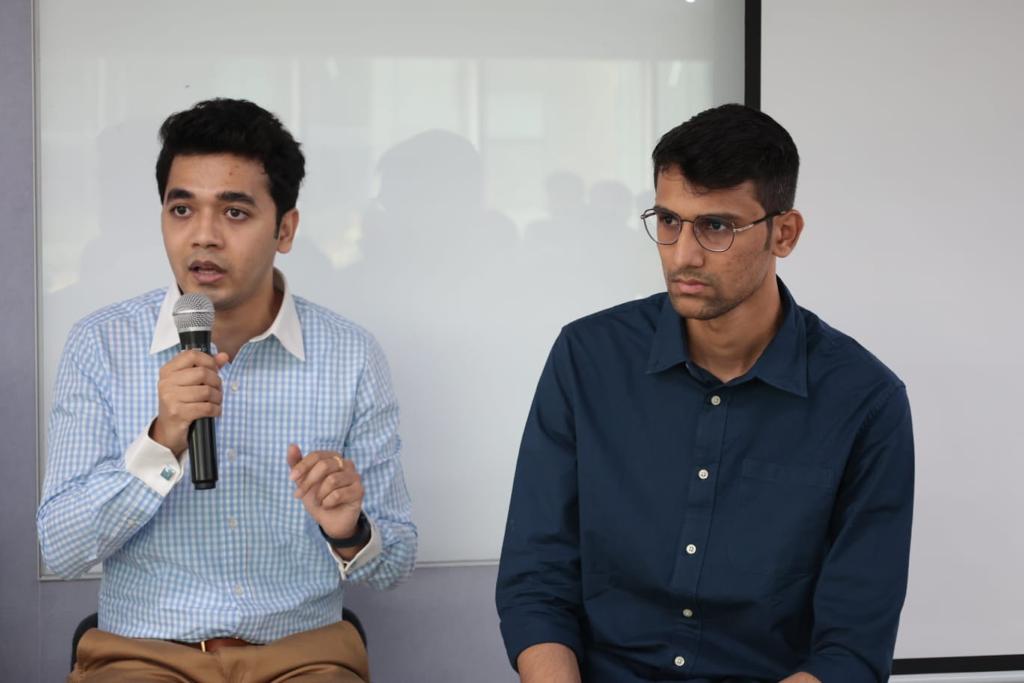
What are the key skills required to land a job in a private equity fund?
Private equity firms look for candidates with a strong academic background and rigorous analytical skills, which is why they tend to hire individuals from prestigious institutions such as IITs and CA programs. Additionally, relevant work experience is essential, with a particular focus on depth of knowledge within a specific sector, including industry size, key players, unit economics, and evolving trends. Communication and interpersonal skills are also highly valued as investing is a relationship-based business. Finally, the ability to work well in a team is crucial, as private equity is not a solitary pursuit. EQ (emotional intelligence) is considered just as important as IQ in this field. These are the four broad categories of skills that private equity firms value, along with a strong moral compass.
What are some effective ways to gain knowledge about a specific industry and what tools or reports should one refer to?
To gain knowledge about a particular industry, it’s important to start by reviewing the company’s quarterly reports and understanding the trends and micro trends that are addressed. It’s also important to analyse the financials, including margins and why they may be increasing or decreasing. Many companies have broker record and coverage reports, which can be helpful. In addition, research analysts need to cover the breadth and depth of the industry, including identifying key players, fraud risks, and how the industry is evolving over time. It’s crucial to track these areas and stay up to date with industry developments. Reports such as IOC reports and research reports can be helpful in quickly ramping up on a particular industry.
However, more than just tools, it’s essential to foster a culture of excellence and have a willingness to go to the next level. Passion and the ability to think from multiple angles are important qualities that private equity firms look for. It’s important to note that you will be tested on what you have done, not just what you know. So, continuously pushing yourself to learn more and think creatively is crucial for success in the industry.
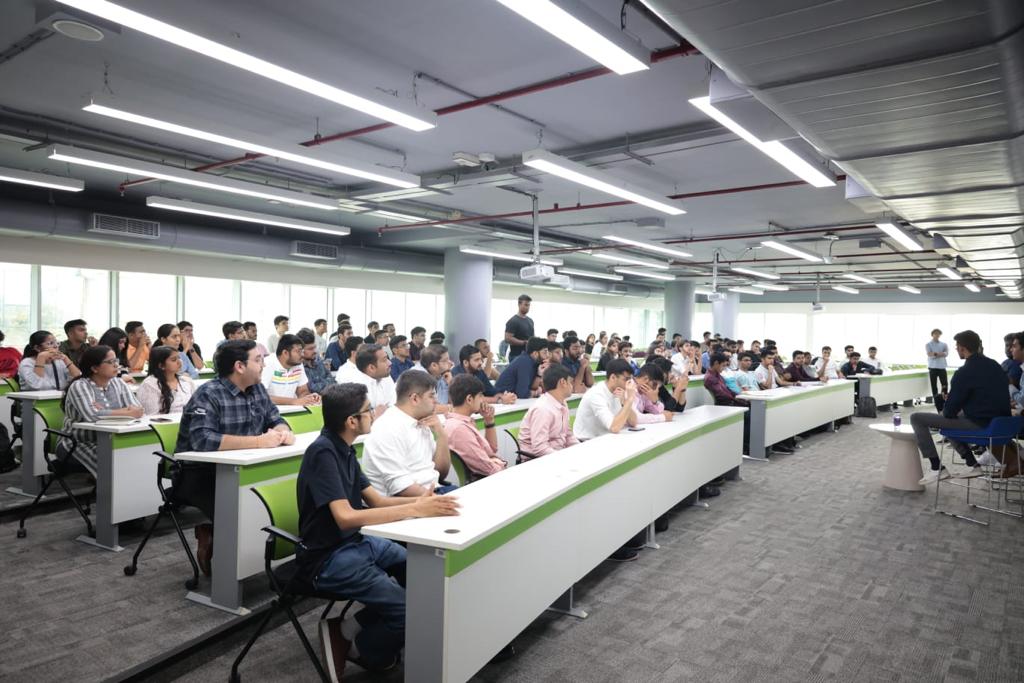
Can you describe your interview experience for a private equity job?
Generally, a private equity interview consists of 5-10 rounds that last 45-60 minutes each. The questions cover themes such as introducing yourself, basic finance and accounting concepts, business case studies, and western case studies where you have to assess if you would invest in a company or not.
It’s essential to have a clear and effective sales pitch about yourself in the first few minutes. Besides, you need to be knowledgeable about your work experience, clients, and industry, the firm you are interviewing for and their investment portfolio. It’s more important to prepare thoroughly on these aspects than complex modelling techniques. The interview process’s duration varies from a few weeks to a couple of months, depending on the firm.
From the recruiters’ perspective, what do they look for in a candidate during the interview process?
Recruiters value attitude and work ethic, looking for integrity, trustworthiness, tenacity and being a team player. They also value a culture of excellence and consistency in going above and beyond to find the right answers. Humility is also important, as candidates may be given a lot of opportunities early on in their career. Additionally, recruiters look for good analytical skills, basic knowledge of finance and structured problem-solving abilities.
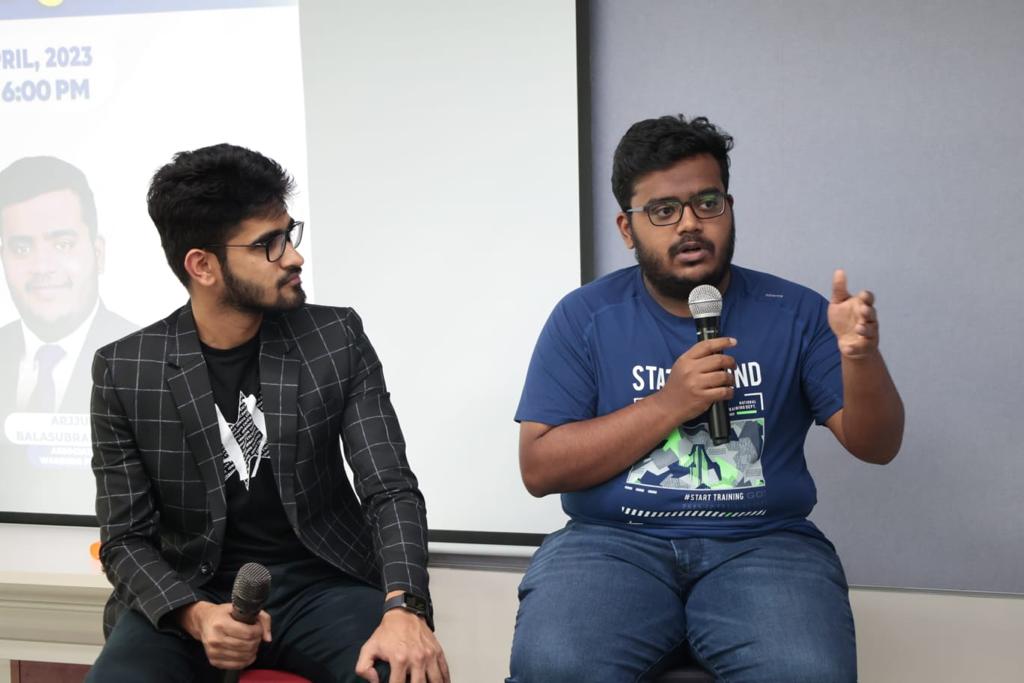
What are the salary differences between domestic and global PE funds?
Salaries in PE can vary and it’s important not to make career decisions based solely on short-term monetary gain. Global PE funds generally pay slightly more than domestic PE funds. However, it’s important to note that a significant portion of compensation in this field is variable and dependent on individual performance. As you progress in your career, you may receive a percentage allocation of the capital gains from the deals you have worked on. For analyst associates, fixed salaries typically range from 40 lakhs to 89 lakhs with variable pay ranging from 60 to 100%.
Can you explain how the working hours in Private Equity typically look like? What kind of work do analysts do in PE?
In Private Equity, analysts typically work on evaluating new opportunities in the market, as well as strategizing on how to create value for the companies in their portfolios. They also work on exiting portfolios at the right time. As they advance in the investment process, they work on specific areas of financials and perform various types of diligence such as commercial, financial, and legal. The working hours in PE can vary depending on the stage of the investment process, ranging from 12 hours a day on average to as much as 15-18 hours during the diligence phase. Analysts take breaks when needed, especially during the non-diligence phase which can be less demanding.
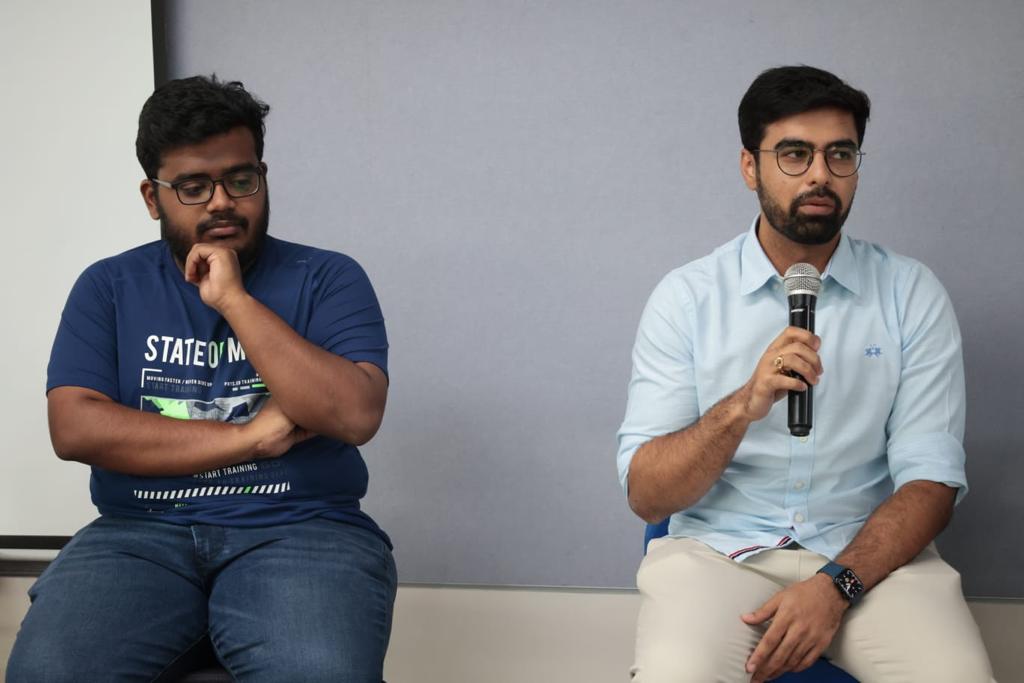
What resources do you recommend for staying updated in the PE industry?
You must take time to read the daily newspaper every morning as it provides important updates on specific sectors. In addition, you can use Google and ChatGPT to dig deeper. Once you join the PE industry, there are a great number of good internal resources available. You just need to ask the right questions to access them. Before joining, you can refer to annual reports, coverage reports and newspapers. Websites like screener.in and smallcase.com can also be helpful.
Is it necessary to have an MBA to get into a private equity fund?
For the analyst and associate roles, an MBA is not necessary. However, for senior associate and VP roles, an MBA was previously considered necessary about 70-80% of the time 5-6 years back. But this is slowly changing now, and some firms prioritise the right skillset, relevant deal experience and the ability to close deals over having an MBA. For some firms, having a CA (Chartered Accountant) is mandatory if they are hiring someone from a commerce background. It ultimately depends on how the leadership of the firm thinks and their changing priorities.
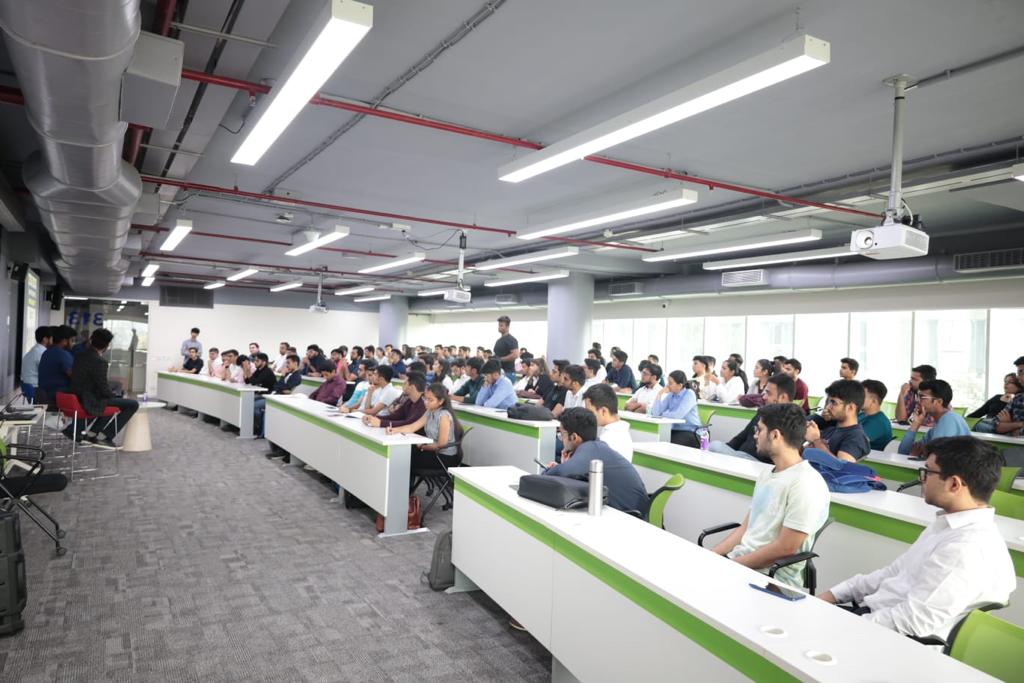
Can you walk us through the typical flow of a private equity deal, from scouting the investment to finalising everything?
There are four main parts to a deal, excluding the exit stage:
Sourcing
This involves identifying potential investment opportunities. We do this through various sources, such as company presentations, referrals and industry research. We have to evaluate whether the company fits our investment criteria and whether it has the potential to generate returns.
Preliminary diligence
This involves conducting initial research on the company and its industry. We analyse the company’s financials, market position, and management team, among other factors. If the company passes this stage, we move on to the next step.
Advance diligence
This involves a more detailed analysis of the company. We may engage external consultants to perform commercial and financial due diligence, assess legal and regulatory risks and evaluate any potential environmental or social impact. This stage is crucial in determining the valuation of the company.
Formalising the relationship:
If the investment committee approves the deal, we then negotiate the terms and conditions of the investment. This includes agreeing on the purchase price, the structure of the investment (equity or debt), the exit strategy and the governance structure. Once the terms are agreed upon, we sign the necessary legal documents and transfer the funds to the company.



